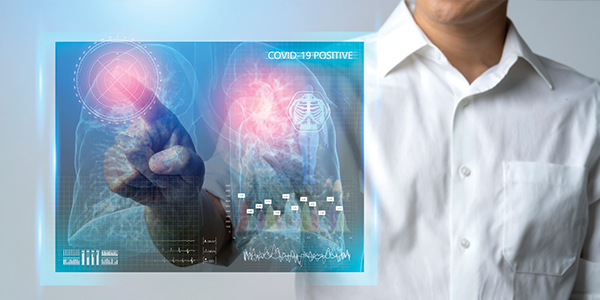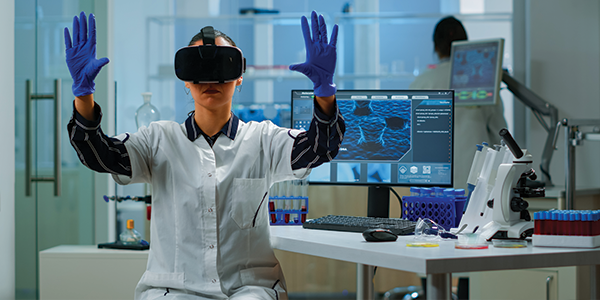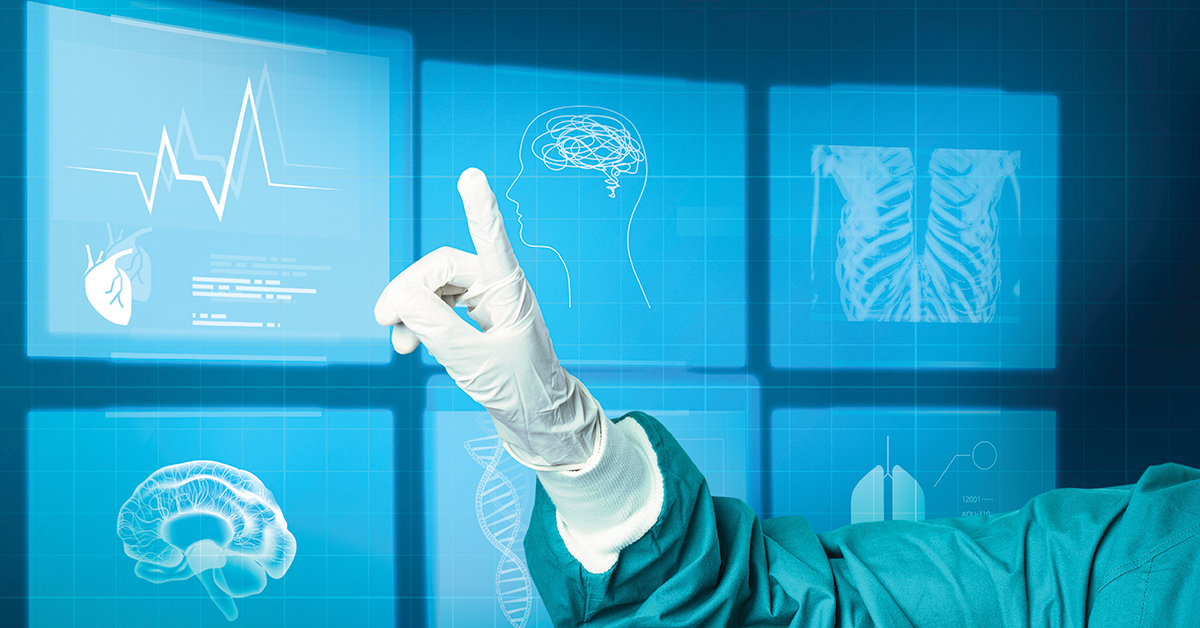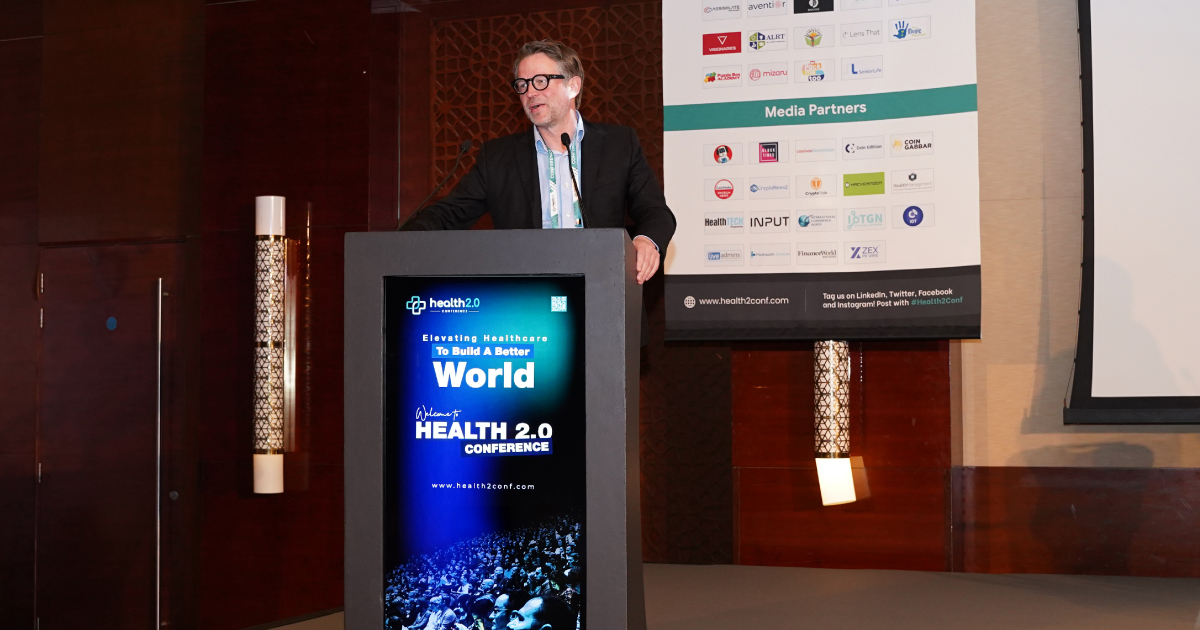Over the past few years, the medical community has made remarkable strides in developing new therapies and innovative treatments. Tech advancements in medical equipment have greatly improved patient outcomes.
Upcoming healthcare events in the USA aim to explore its impact on the general quality of life for patients. The Health 2.0 conference is one such event that highlights the modern changes in hospital settings from benches to bedsides. Read ahead to discover how new medical treatments have influenced patient healthcare outcomes and improved their experience manifold.
Traditional To Modern Methods In Treatment: Embracing The Change-
Over time, a lot has changed in the process and outcome of medical treatments. From the older Nuclear MRI equipment to the most recent advancements in High-V MRI machines, convenience, and increased efficiency are the major achievements. Such advancements have revolutionized the way we diagnose and treat various illnesses and conditions, providing us with new tools to fight diseases that were once considered incurable.
Healthcare experts from around the world gather at the top healthcare conferences today to discuss groundbreaking discoveries in modern medicine. Gene therapies and minimally invasive surgeries are some cutting-edge treatments that offer new hope for patients who are struggling with a wide range of health challenges in the present day.
At the same time, it is important to remember that each patient's medical journey is unique, and there is no one-size-fits-all solution when it comes to treatment. Medical experts from health conferences worldwide believe that it is crucial to identify exactly what treatment best suits individual needs and circumstances.
Why Is It Important To Bring New Medical Treatments To Patients?

Broadly, many reasons are making it necessary for the healthcare sector to bring modern medical facilities to the limelight. Let’s break them down!
- Improving Patient Outcomes:
New medical treatments can offer improved outcomes for patients, including better survival rates, reduced symptoms, and improved quality of life. They can provide patients with options that were previously unavailable, or improve upon existing treatments to make them more effective.
- Addressing Unmet Medical Needs:
There are many medical conditions and diseases that currently have no effective treatments or cures. New medical treatments offer hope for patients who may be suffering from these conditions and may provide a path toward improved outcomes.
- Advancing Medical Science:
Medical research and innovation are essential for advancing medical science and improving our understanding of various diseases and conditions. New treatments can lead to the development of new drugs and therapies that can help treat and cure diseases.
- Economic Benefits:
The development and commercialization of new medical treatments can provide economic benefits by creating new jobs, generating revenue for pharmaceutical companies, and reducing healthcare costs over time by improving patient outcomes.
- Humanitarian Reasons:
Improving healthcare and helping patients is a humanitarian goal that is important for society as a whole. New medical treatments can help reduce suffering, increase life expectancy, and improve the overall well-being of individuals and communities.
Upcoming health events in the USA have a common agenda: Emphasising the vitality of the development and availability of new medical treatments. Experts at some of the top healthcare conferences, like the Health 2.0 Conference, believe that hospital sectors must support and invest in medical research and innovation to ensure that patients have access to the best possible care.
Barriers To Establishing Modern Medical Treatments In Hospitals-
Bringing new medical treatments to patients is a complex process that involves many stakeholders, including researchers, regulators, healthcare providers, patients, and insurers. As a result, several issues can arise during the process. Some of these, as discussed in renowned health conferences, include concerns such as-
- Access and Affordability:
Even after a new medical treatment has been approved, it may not be accessible or affordable for all patients. Some treatments may only be available at specialized centers, while others may be prohibitively expensive for patients without insurance coverage or adequate financial resources.
- Regulatory Approval:
Before a new medical treatment can be made available to patients, it must go through a rigorous regulatory approval process to ensure its safety and efficacy. This process can be time-consuming and expensive, and there is no guarantee that a treatment will be approved.
- Research and Development:
Developing new medical treatments can be a long and expensive process that requires significant investment in research and development. Researchers may also face challenges in finding enough patients to participate in clinical trials, which can slow down the development process.
- Safety and Efficacy:
There is always a risk of unexpected side effects or adverse reactions when using new medical treatments. It is crucial to carefully monitor patients and collect data on the safety and efficacy of new treatments to ensure that they are effective and do not pose significant risks.
- Education and Awareness:
Patients and healthcare providers may not be aware of new medical treatments or how to access them. It is important to raise awareness and educate patients and healthcare providers about new treatments to ensure that they are used appropriately and effectively.
While there are many challenges in bringing new medical treatments to patients, the potential benefits of these treatments make it a worthwhile endeavor. It is important to work collaboratively to overcome these challenges and ensure that patients have access to the best possible care.
Innovative Trends In US Medical Treatments Available To Patients;

Many health conferences share several new medical treatments that have emerged in the US over the past few years, offering hope to patients struggling with various health conditions. Some of these treatments include:
- Gene Therapy:
This innovative treatment involves replacing or repairing a patient's defective or missing genes with healthy ones. Recently, the FDA has approved several gene therapies for the treatment of inherited diseases such as spinal muscular atrophy and certain types of leukemia.
As of September 2021, the US FDA has approved 13 gene therapy products, including treatments for rare genetic diseases such as spinal muscular atrophy and inherited retinal disorders. However, the use of gene therapy is still relatively limited due to its high cost and the need for specialized expertise to administer the treatments.
- Immunotherapy:
This treatment harnesses the power of the patient's immune system to fight cancer by using drugs that help the immune system recognize and attack cancer cells. Immunotherapy has shown great promise in treating various types of cancer, including melanoma and lung cancer.
In recent years, immunotherapy has become a leading treatment for certain types of cancer, such as melanoma and lung cancer. According to the American Cancer Society, as of 2020, there were more than 100 FDA-approved immunotherapy drugs on the market, with more in development.
- Minimally Invasive Surgery:
Advances in surgical techniques and technology have led to the development of minimally invasive surgeries that require smaller incisions, reduce pain, and speed up recovery times. These techniques are now commonly used for procedures such as hernia repair, gallbladder removal, and hysterectomy.
Minimally invasive surgeries have become increasingly popular in recent years, with over 3 million laparoscopic surgeries performed annually in the US alone. This approach can result in shorter hospital stays, less pain and scarring, and faster recovery times compared to traditional surgery.
- Precision Medicine:
This approach involves tailoring treatments to a patient's specific genetic makeup, lifestyle, and other factors to achieve the best possible outcomes. Precision medicine is being used to treat various conditions such as cancer, heart disease, and Alzheimer's disease.
Precision medicine is a growing field that aims to tailor treatments to individual patients based on their genetics, lifestyle, and other factors. As of 2020, there were more than 40 FDA-approved precision medicine drugs on the market, with more in development.
- Digital Therapeutics:
These are digital health tools and apps that are designed to treat various health conditions, such as addiction, depression, and anxiety. They often use cognitive behavioral therapy, mindfulness techniques, and other evidence-based approaches to help patients manage their symptoms.
The digital therapeutics market is growing rapidly, with an estimated value of $2.2 billion in 2020, and is expected to reach $6.9 billion by 2025. There are now a wide variety of digital health tools and apps available to patients, including those that focus on addiction, depression, and anxiety.
What Is The Future Course For New Medical Treatments?

Some of the top healthcare conferences predict that new medical treatments will continue to be brought to patients in the future. Medical research and innovation are constantly advancing, and new treatments are being developed all the time. The pace of innovation in the medical field is accelerating, driven by advances in areas such as genomics, artificial intelligence, and digital health.
Modern health conferences focus on exploring upcoming state-of-the-art trends in medical treatments. For instance, increased Investment in medical research, technological advances, global collaboration, and patient advocacy.
How Does The Health 2.0 Conference In Promoting Modern Medical Treatments?
For any health enthusiast, Health 2.0 Conference is a major hotspot for the latest trends and advancements in the healthcare industry. It provides an open global platform for speakers and medical experts to share cutting-edge developments in the field of medicine and the potential benefits of these treatments. If you are looking for exposure to the modern advancements in medicine, and researchers' perspectives on it, Health 2.0 Conference is just the event for you!
















